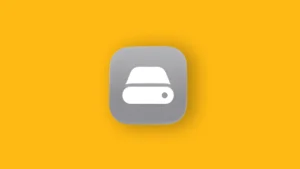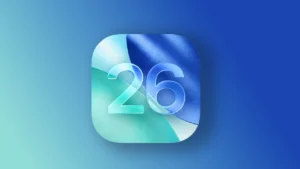The first thing you expect from Apple Music is to play music. But unfortunately, that’s not always the case. Numerous users have reported that Apple Music is not playing songs for them.
Now, if you’re one of those users (and I assume you are since you’re reading this article), we’ve compiled a list of simple solutions for you. Just try these workarounds, and hopefully, you’ll be able to enjoy listening to music on your iPhone in no time.
In this article:
ToggleApple Music won’t play songs
If Apple Music is not playing songs or it’s not working at all, you can usually fix it by:
- Checking the network connection.
- Force closing the app.
- Installing iOS updates.
- Allowing necessary permissions.
- Sign out and back in with your Apple ID.
- Resetting Apple Music settings.
1. Check your internet connection
Unless you’re trying to play a song you’ve already downloaded, Apple Music requires an internet connection to work. So, make sure you’re properly connected to a Wi-Fi network, or you at least have cellular data enabled. If you notice something wrong with your internet connection, check this article out for some solutions.
Speaking of cellular data, you’ll need to first allow Apple Music to use it for streaming songs and other activities. If Apple Music isn’t permitted to use cellular data, and you’re not properly connected to a Wi-Fi network, it won’t be able to play songs. Here’s how to make sure Apple Music is allowed to use cellular data:
- Go to Settings.
- Scroll down and open Music.
- Tap Cellular Data.

- Make sure both Cellular Data and Streaming options are enabled.
You’ve now allowed Apple Music to use cellular data, and you’ll be able to stream songs even when you’re not connected to a Wi-Fi network. Just make sure to keep the usage in check, because streaming will eat some of your data. It won’t be drastic, though, but still worth paying attention to.
2. Force close Apple Music/Reboot your iPhone
Sometimes a thing as simple as restarting your iPhone or the app itself may resolve the problem. And that’s what you should do before trying anything more drastic. First, let’s restart Apple Music. Just swipe up from the bottom of your screen, and the task manager will appear. Find Apple Music, and swipe up to dismiss the app. Now, open the app once again and check if the problem persists.
If restarting the app didn’t get the job done, go ahead and reboot your phone. To reboot your iPhone, press and hold the Side button + the Volume Down button at the same time, until the Power off slider appears. Just drag the slider to the right, and your iPhone will power off.
3. Check your subscription and region
I know it sounds silly, but make sure you’re still subscribed to Apple Music. Maybe you accidentally canceled your subscription or a person who runs the family account you’re a part of canceled theirs. Or maybe your credit card got declined during the last payment.
Changing your account region could also affect your subscription. This is especially true for non-US users. For example, if you change your region to a country that doesn’t support Apple Music, your subscription won’t be valid anymore. So, make sure you have your subscription and region in sync.
4. Update your iPhone
iOS updates are tricky. Most of them will improve your phone or introduce new features. However, some updates may do more harm than good. As Apple Music is a first-party app, a certain update can render it obsolete. If you suspect that may be the case, your best bet is to check for new updates, as Apple will surely tackle the issue in the next release.
If there’s no new update available, and you can’t wait for it, you can search for a possible solution online. Although, your success may be questionable, especially if the issue is internal.
5. Sign out of your Apple ID
Signing out and in of your Apple ID will re-sync your iPhone with your iTunes library, which could ultimately lead to resolving the issue with Apple Music. Here’s what you need to do:
- Go to Settings.
- Tap your name, and go to Sign out.
- Type your Apple ID password and tap Turn Off.
- A window asking you which data you want to copy from your iCloud account to your phone will appear. Keep in mind that this might delete some data from your phone, so you’ll want to carefully read the instructions on this page.

- Once you’ve decided what you want to keep, tap Sign Out.
- Now that you’re signed out, head back to Settings, and go Sign in to your iPhone.
- Enter your credentials, tap Next, enter your passcode, and you’re back in.
6. Offload Apple Music
If none of the previous solutions resolved the problem, you might as well try and offload the app. The best thing about this approach is that it allows you to delete the app’s core from your iPhone, without deleting its data. That way, when you install the app again, all your settings will be there and you won’t have to start from scratch.
Here’s how to offload Apple Music:
- Go to Settings.
- Head over to General > iPhone Storage.
- Scroll down until you find Music.
- Tap the Google Photos app and go to Offload App.
- Tap Offload App to confirm.
Apple Music won’t play explicit songs
One of the weirdest problems with Apple Music is when it is not playing explicit songs despite your settings allow explicit songs. Now, I can’t tell you the reason for this, because I couldn’t find what causes the issue. What I did find, tho is the solution. And I can confirm it works since it resolved the problem for me.
I also put a few additional solutions on top, because people also reported these workarounds to be helpful. Hopefully, one of these will work for you.
1. Play an explicit podcast
The solution that did the trick for me was playing an explicit podcast. Just go to the Podcasts app, find an explicit podcast (with the letter E next to its title), and play it. Once you successfully play the podcast, head over to Music and try to play an explicit song. The song should play without any problems now.
2. Check content restrictions if Apple Music is not playing songs
Another reason why Apple Music is not playing explicit songs is that certain restrictions were applied. Here’s how to check for those restrictions:
- Go to Settings.
- Head over to Screen Time > Content & Privacy Restrictions.
- Go to Content Restrictions.

- Open the Music, Podcasts, News & Workouts sections.
- Select Explicitly.
3. Switch to iTunes
If the podcast’s workaround didn’t get the job done, go and try the same thing inside iTunes. Open iTunes on your PC/Mac and try to play an explicit podcast or song. A popout notification about playing explicit content will appear. Just hit Agree, and the song should play. Now, head back to Apple Music on your phone and check if the issue is resolved.
And, with that said, we can call it a wrap. If you want to discuss this article further, leave your comments in the comments section below.
Editor’s note: This article was originally published in May 2021. We made sure to revamp it for freshness and accuracy.



